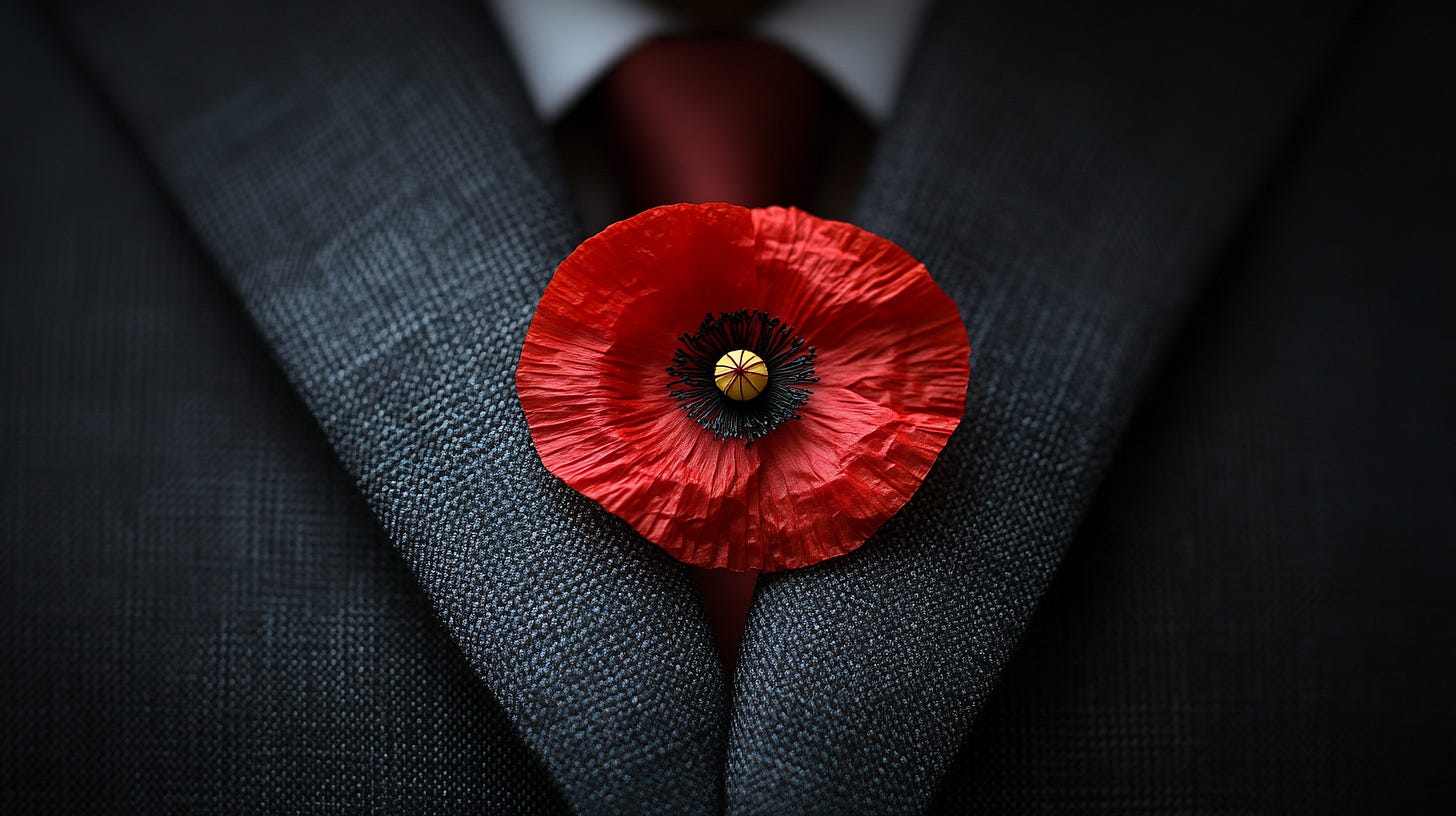🕯️ Lest We Forget
The Meaning of Remembrance in a Forgetful Age
Every November, we pause — or at least, we’re supposed to.
For a single minute, at the eleventh hour of the eleventh day of the eleventh month, we’re asked to stand in silence. To remember.
But remembrance is not silence. It’s not a ceremony. It’s not the sound of a trumpet, or the echo of boots on cold pavement.
Remembrance is a living act — one that dema…




